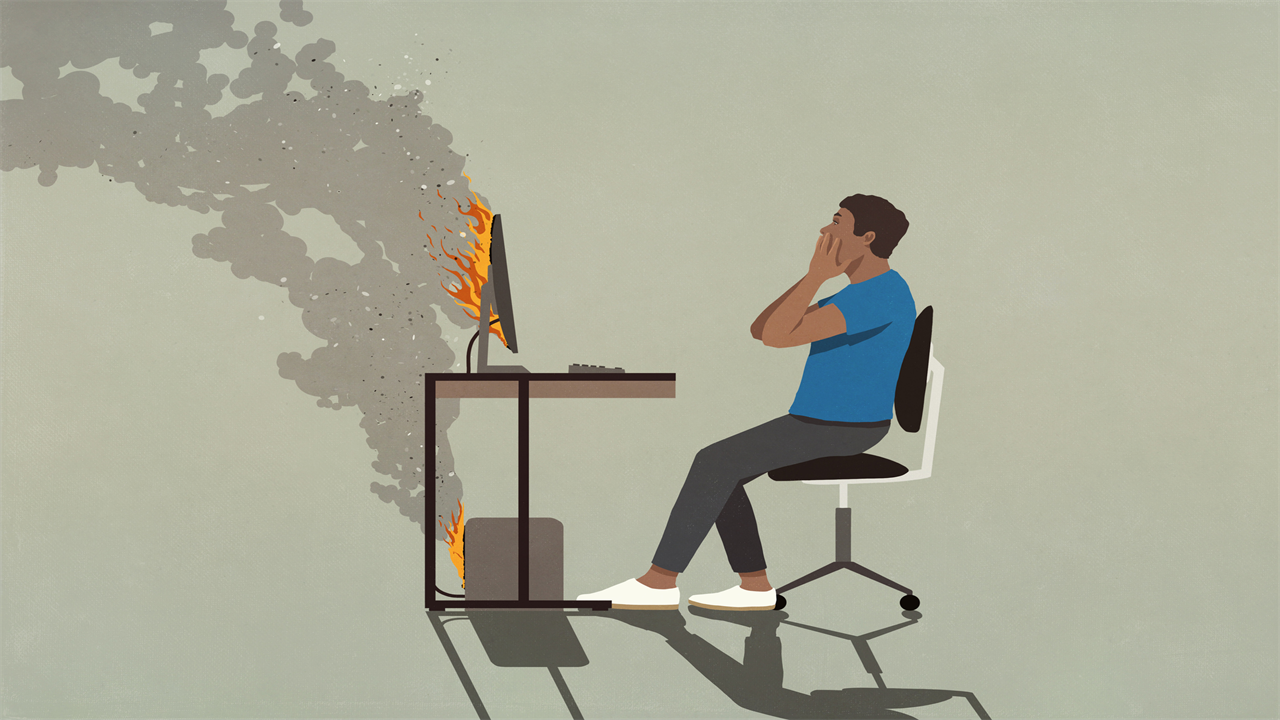The Whole World Is at Risk for ‘Compassion Fatigue’
0 View
Share this Video
- Publish Date:
- 10 November, 2023
- Category:
- Fitness
- Video License
- Standard License
- Imported From:
- Youtube
Tags
>

After serving in the Vietnam War, Charles Figley became interested in the concept of trauma—not only the lasting psychological wounds that people experienced after living through traumatic events themselves, but also how their loved ones often came to share those burdens. “Simply being a member of a family and caring deeply about its members makes us emotionally vulnerable to the catastrophes which impact them,” he wrote in 1983.
[time-brightcove not-tgx=”true”]At the time, Figley—who now runs the Tulane University Traumatology Institute—called these trickle-down effects “secondary traumatic stress reactions.” Today, however, he often uses the term “compassion fatigue” to refer to the emotional and physical exhaustion that sometimes afflicts people who are exposed to others’ trauma.
In the nearly 50 years since Figley began researching these concepts, compassion fatigue has been primarily studied among people in “caring professions” like health care and social work, who are routinely exposed to pain on the job. But Figley’s early work, on how ordinary people can be infected by the trauma of others, is becoming increasingly prescient at a time when just about everyone is near-constantly exposed to content about war, violence, death, and injustice on the news, internet, and social media.
Indeed, it now seems that “anyone can experience compassion fatigue,” says Briana Smith, a Ph.D. student at the Tulane University School of Medicine who works with Figley.
Michelle Trent, executive director of The Compass Center, a nonprofit counseling center in South Dakota focused on trauma healing and prevention, saw that firsthand in 2020. Many of her clients were struggling not only with issues in their personal lives, but also with the emotional drain of living through the COVID-19 pandemic, the racial justice movements following George Floyd’s death, and other societal stressors. “Our clients were coming in just saying, ‘We can’t watch the news anymore. We can’t do this anymore,’” she says. “That’s really when it came to our radar.”
Figley’s research suggests people who develop compassion fatigue may experience symptoms similar to those of PTSD, including trouble sleeping; becoming triggered by difficult emotions or memories; and changes in personality, mood, or affect. It can also manifest as emotional numbness, with the sufferer becoming desensitized to the experiences of others and struggling to connect with patients, colleagues, or loved ones.
Gabriela Murza, an assistant professor at Utah State University who educates people in the surrounding community about public-health topics including compassion fatigue, says feeling overwhelmed can also be part of it. “When someone has compassion fatigue, they will feel like there’s a lot happening and they don’t know where to start and they don’t know what to do, so sometimes they will turn off their emotions,” she says.
Figley says health care workers are the “most obvious” people at risk due to the nature of their professions. But Smith’s research with Figley suggests it’s not just a workplace phenomenon. She is studying compassion fatigue among volunteers, including people who provide household care for family members and people who volunteer with emergency services, and has found that they may be even more susceptible than professionals—in part because they’re sometimes thrust into difficult work without extensive training, and in part because they tend to have a personal tie to their chosen cause, which amplifies their emotional reactions.
Regular people may, similarly, be more likely to experience compassion fatigue if they personally identify with an issue in the news or that a loved one is experiencing. Someone of Middle Eastern descent, for example, might be especially affected by images of the current war in Gaza and Israel, Smith says.
Triggers vary from person to person, Trent says, so there’s no way to know for sure what will cause compassion fatigue. But she says it’s important to monitor how you’re feeling during stressful or emotionally taxing times. If you don’t feel like yourself or are reacting more strongly than usual to difficult situations—perhaps by snapping at others or growing angry when you’re usually level-headed—you may be experiencing compassion fatigue.
If that’s the case, taking a break from difficult news and social media is a good first step, Trent says, though she notes that there’s a difference between ignoring a situation and taking purposeful time to recharge. She recommends using your break for personal wellness—moving, getting good sleep, spending time outdoors—and connecting with people in your community to remind yourself of “the good in humanity.”
Doing so may help counter some of the overwhelming feelings that accompany compassion fatigue, Murza says. There’s often no clear way for an individual to help in an issue with global consequences, which can cause people to withdraw. But “there might be an organization in your city where you can volunteer…to make a difference for people experiencing loss or tragedy,” Murza says.
Social connection is, in general, a balm for compassion fatigue, Smith adds. Studies suggest confiding in people who relate to your feelings, such as coworkers or fellow volunteers, can help, she says. Finding a therapist to speak with can also be beneficial, Trent says.
“Compassion is like a tank of gas,” Trent says. “At some point, if you don’t replenish it, then you’re on empty.”













